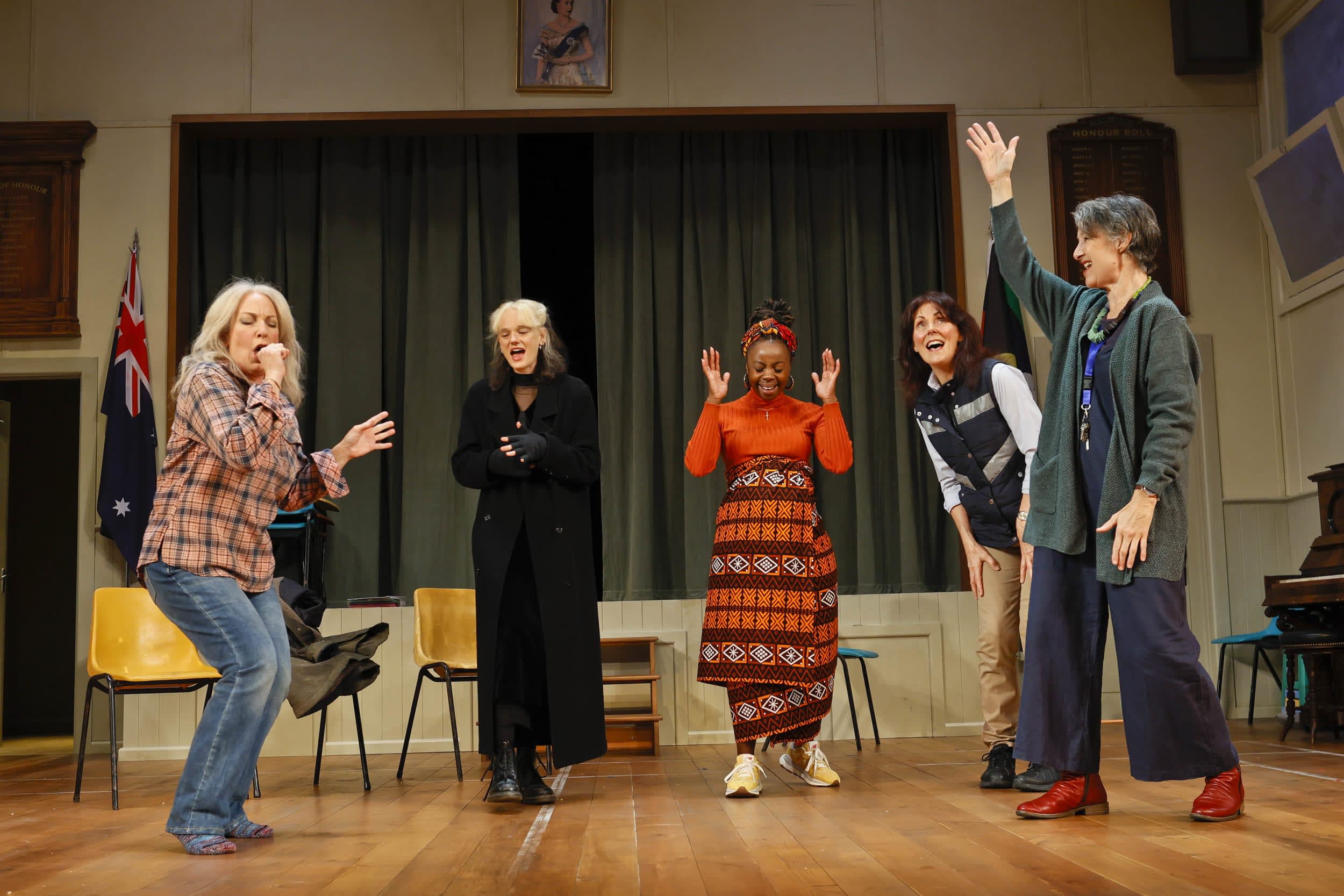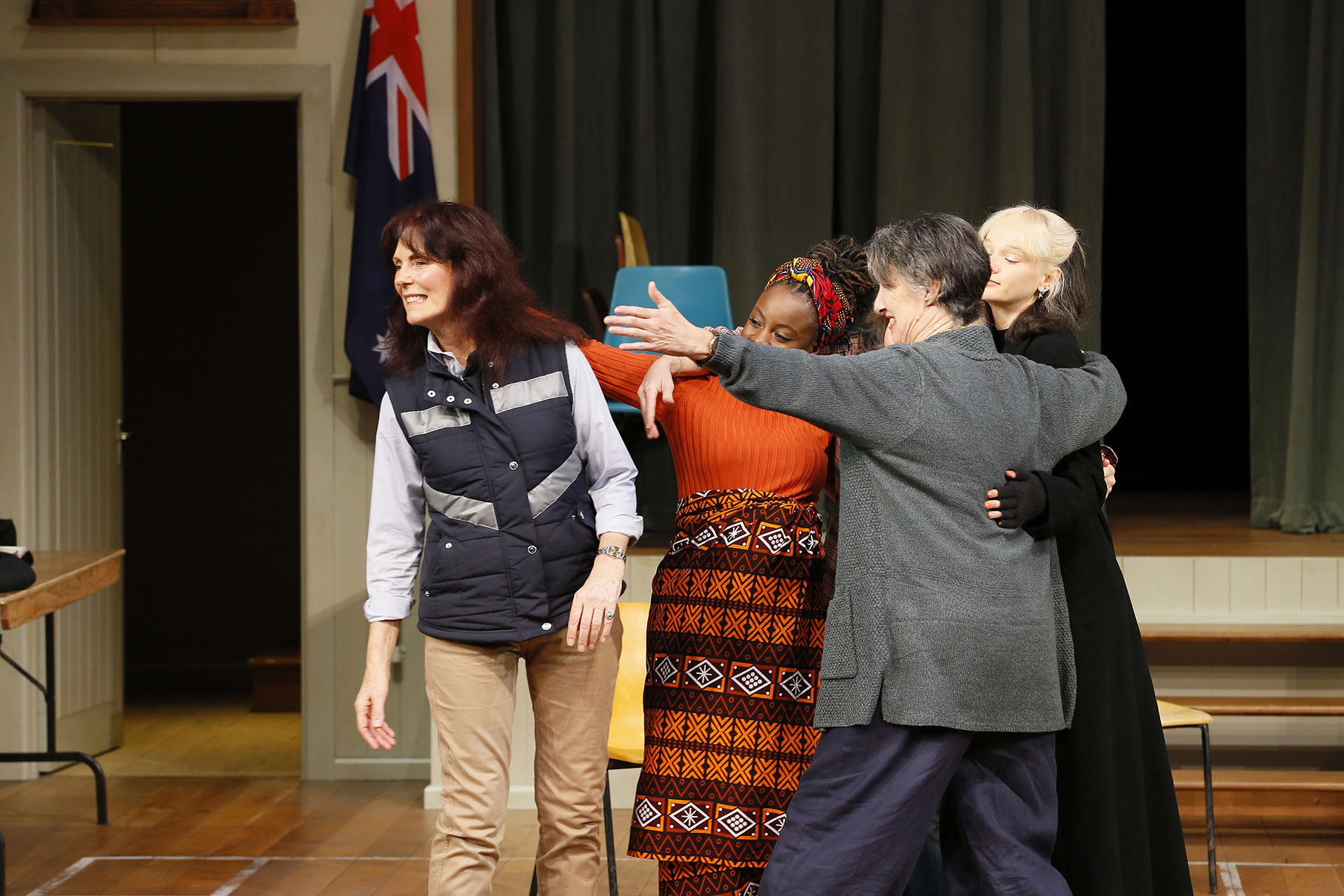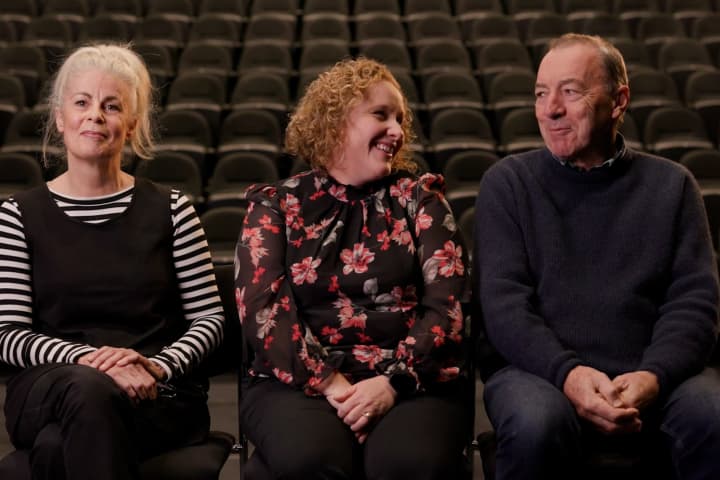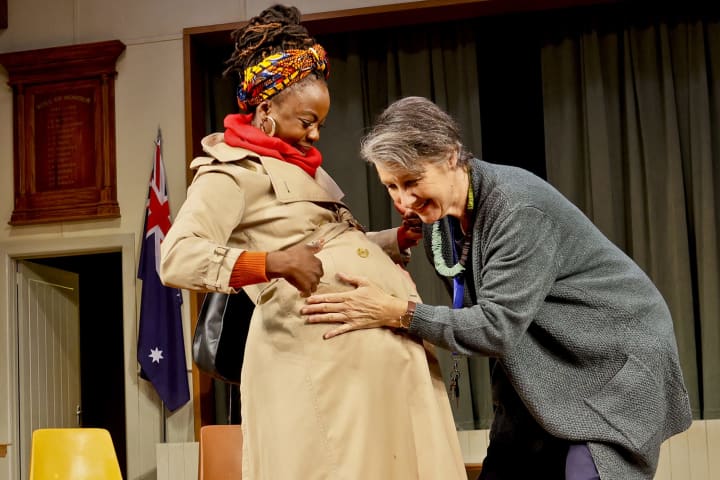What were your thoughts when you first read The Heartbreak Choir?
Well, I suppose my reading was coloured because I knew Aidan Fennessy for such a long time and we were friends. I could see him pursuing areas of life that remained potent, provocative and informative for him within the play. So I thought, that's interesting. He's still pursuing an idea that hasn't reached a resolution or opened itself out fully for him as yet, which I thought was beautiful. But I was also struck by how the women characters in the play related to one another in such an inclusive, open and engaging way. They made space for each other to be completely themselves, which is very beautiful.
Because this is a new play, there has been room for development in rehearsals. What has that process been like?
I do a lot of new work and I also make work of my own. So this process isn’t foreign to me. It can be a little unnerving, but it's certainly not foreign. And I appreciate the reach of that process, the aspirational nature of it to make room and find the best possible means in which a play can land into the world. And in this case, because of Aidan’s passing, we lost his final thoughts on the play. So we, and particularly Director Peter Houghton, are navigating a new play without the playwright being present, which is an experience I’ve never had. I find it a remarkable and awe-inspiring experience. But at the same time, there is a nervousness with that because Aidan isn’t present. Though Peter and Aidan were very close friends and two great minds who loved their work, so it certainly couldn’t be in better hands.

Louise Siversen with Carita Farrer Spencer, Emily Milledge, Ratidzo Mambo and Maude Davey in The Heartbreak Choir. Photo: Jeff Busby
What excites you most about working on this play?
Well, I'm not formally a singer. I can hold a note but I'm not a singer. So what I've loved as part of my preparation for playing Totty has been really getting into singing with my vocal coach. And that's been a wonderful experience. It's not only opened up another aspect of me as a performer but it's also opened up notes in my range, which I didn't previously have. It's just thrilling to have that kind of energy and the repercussions of those sounds coming into your body. It can transport you. So that for me has been a wonderful aspect of this play.
You play Totty, who is a founding choir member, described as a frighteningly organised woman involved in many aspects of the town. Can you tell us more about her?
Totty is committed to the town and wants the town to do well. She’s prepared to not only put her back into it but also her considerable monies into making this town thrive. And that’s because the town isn’t an entity to her. It’s a character, a personality, it’s alive. And the town is made up of all these people who, regardless whether she personally gets on with each and every one of them, are all necessary for the whole.
Totty is part of a group of locals who split from an original choir to form a new choir. Given that the town and community are integral to her, do you think this causes her internal conflict?
I think there’s a point probably for her where she feels that we are also bound to follow our own personal truth. And woe betide if you don’t follow that personal truth. Which is something I wrestle with continuously. It’s always frightening to stand the line. But I think sometimes the making of us is when we stand alone and decide that’s wrong. And I think for Totty that sense is very strong. She is courageous. For me to embody someone who’s got that courage is very inspiring and it gives me an opportunity to enlarge that aspect of my psyche, and I’m very grateful for that.
 Louise Siversen with Ratidzo Mambo, Emily Milledge and Maude Davey in The Heartbreak Choir. Photo: Jeff Busby
Louise Siversen with Ratidzo Mambo, Emily Milledge and Maude Davey in The Heartbreak Choir. Photo: Jeff Busby
Why do you think Totty is drawn to participate in a choir?
I think for Totty, she just loves music. And I think she loves being in movement with other people in a place, because she's not on the front foot emotionally. She's not somebody who's expressing herself emotionally very strongly. So by joining the choir with these women, who she obviously loves, she doesn’t have to do it up front, she can sing it with them.
What do you hope audiences feel or experience when they come and see the show?
I hope they have a period where they’re released from whatever is pressing on them. And that they come and rest and rejoice in watching people experience both the joy of music and the joy of friendship. The play navigates some difficult material but to do it through a lens of comedy is helpful for people. It lessens that brute force of the message and allows people some space to engage with it. But ultimately I think there’s nothing as reviving as watching a unified core of people. I think it’s incredibly human and beautiful.
The Heartbreak Choir is on stage until 28 May at Southbank Theatre.
Published on 6 May 2022





